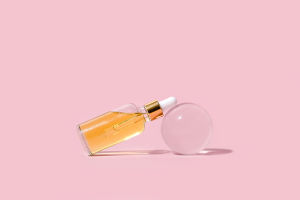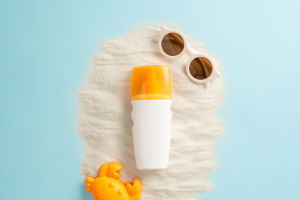Beginner’s Guide to Oils
Essential oils have become increasingly popular in recent years as more people turn to natural remedies for their health and wellness needs.
These concentrated plant extracts offer a wide range of benefits, from promoting relaxation to improving skin health.
If you're new to essential oils, this guide will walk you through the basics, how to use them safely, and which oils to start with.
What Are Essential Oils?
Essential oils are highly concentrated liquids derived from various parts of plants, including leaves, flowers, roots, and bark. The extraction process typically involves methods like steam distillation or cold pressing. The result is a potent oil that carries the unique aroma and medicinal properties of the plant it came from.
The Benefits of Essential Oils
Essential oils offer various benefits, and their uses are as diverse as the oils themselves. Here are some popular ways people use them in their daily routines:
- Stress Relief and Relaxation: Oils like lavender and chamomile are known for their calming effects. These oils are often diffused to create a peaceful environment, or they can be added to a bath for a soothing soak.
- Boosting Energy: Peppermint, citrus, and rosemary oils are great for boosting mental clarity and energy. Diffusing these oils can help keep you alert, especially during that afternoon slump.
- Skincare: Tea tree oil is often used for its antibacterial properties, making it ideal for treating acne. Oils like frankincense and rose are known for their moisturizing and anti-aging effects on the skin.
- Immune Support: Oils like eucalyptus and lemon have antibacterial and antiviral properties, which can support your immune system, especially during cold and flu season.
How to Use Essential Oils
There are various ways to use essential oils, but it’s important to understand the right methods to ensure safe and effective use. Here are three common ways to enjoy their benefits:
How to Use Essential Oils: Aromatically, Topically, Internally & Safely
Video by Young Living Essential Oils
1. Aromatherapy
Aromatherapy is one of the most popular ways to use essential oils. Using a diffuser, you can disperse the oil’s scent throughout a room. This allows you to inhale the aroma, which can affect your mood or even your physical state. For instance, diffusing lavender before bed can help promote restful sleep, while eucalyptus oil can clear nasal congestion.
2. Topical Application
Some essential oils can be applied directly to the skin, but they should always be diluted with a carrier oil like coconut, jojoba, or olive oil to avoid irritation. Essential oils are potent, and using them undiluted can cause reactions such as rashes or burns. A common dilution ratio is one drop of essential oil per teaspoon of carrier oil. Once diluted, they can be applied to areas like your temples, wrists, or the bottoms of your feet for quick absorption.
3. Baths
Adding essential oils to a bath is a fantastic way to relax and care for your skin. Be sure to mix the essential oil with a carrier oil or bath salts before adding it to the water, as oils don't dissolve in water on their own. A few drops of lavender or chamomile can create a spa-like experience that melts away stress.
Essential Oils to Start With
As a beginner, it can be overwhelming to decide which oils to buy first. Here are some must-have oils that cover a range of benefits:
- Lavender: Known for its calming properties, lavender is perfect for stress relief, better sleep, and soothing irritated skin.
- Peppermint: This refreshing oil helps with mental clarity, energy, and relieving headaches or muscle pain.
- Tea Tree: A versatile oil, tea tree is great for acne treatment and as a natural antibacterial agent.
- Eucalyptus: Ideal for respiratory support, eucalyptus can help clear congestion and ease breathing.
- Lemon: Uplifting and cleansing, lemon oil is great for freshening the air, cleaning, and improving your mood.
Safety Tips for Using Essential Oils
While essential oils offer many benefits, it’s important to use them safely. These concentrated extracts are powerful and need to be handled with care. Here are some essential safety tips:
- Always Dilute: Never apply essential oils directly to your skin without diluting them in a carrier oil. This prevents irritation and allergic reactions.
- Avoid Ingesting Oils: Some oils are not safe for consumption, and ingesting them can lead to serious health issues. Unless you’re under the care of a professional, it's best to avoid this practice altogether.
- Check for Allergies: Always perform a patch test before using a new essential oil on your skin. Apply a small amount of diluted oil to your forearm and wait 24 hours to see if any irritation occurs.
Store Properly: Keep essential oils in dark glass bottles away from direct sunlight to maintain their potency. Also, make sure they are out of reach of children and pets.
Essential oils offer a natural and versatile way to enhance your health and well-being. From stress relief to skincare, there’s an oil for nearly every need. As you begin your journey into the world of essential oils, remember to start with a few basic oils, use them safely, and enjoy experimenting with different blends and uses. Whether you're looking to improve your mood, care for your skin, or simply create a more pleasant atmosphere at home, essential oils are a powerful and accessible tool for beginners.


